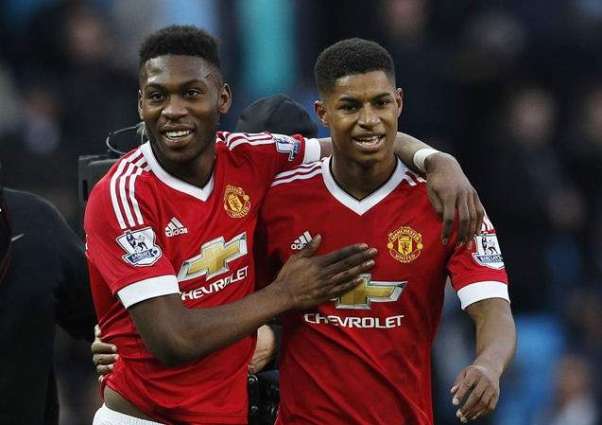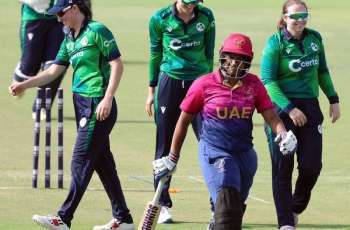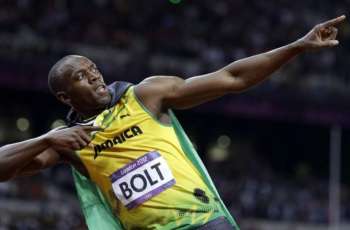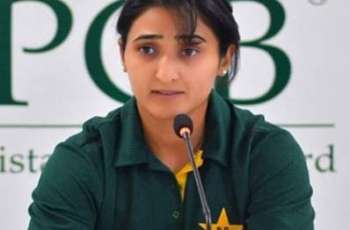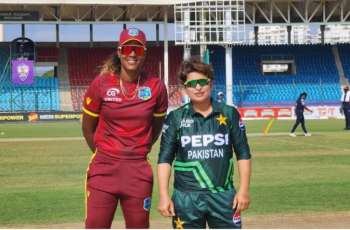Social media platforms and the UK government should take stronger action to prevent non-white soccer professionals from being subjected to racist abuse after several Premier League players were targeted online over recent weeks, a prominent charity chief executive and a former top-flight player told Sputnik
MOSCOW (Pakistan Point News / Sputnik - 02nd March, 2021) Social media platforms and the UK government should take stronger action to prevent non-white soccer professionals from being subjected to racist abuse after several Premier League players were targeted online over recent weeks, a prominent charity chief executive and a former top-flight player told Sputnik.
Non-white English players, such as John Barnes and Viv Anderson, have spoken about the abuse they faced from the stands in the 1970s and 1980s, and while the Football Association (FA), the sport's governing body in England, has taken steps to stamp out racism at soccer grounds, Black and mixed-race players continue to be targeted on social media.
In late January, three non-white players from Manchester United, Marcus Rashford, Axel Tuanzebe, and Anthony Martial, Chelsea's Reece James, and West Bromwich Albion's Romaine Sawyers were all subjected to racist abuse online in the space of a week, prompting government officials such as Digital, Culture, Media and Sport Secretary Oliver Dowden to make a pledge to take greater action.
"Online racist abuse of footballers is absolutely shocking and must stop," Dowden wrote on Twitter on February 8, adding that the government would attempt to change the country's laws to make social media sites more accountable for what takes place on their platforms.
Law enforcement agencies, such as the Greater Manchester Police, have also committed to bringing those responsible for spreading hateful content online to justice.
The recent uptick in online abuse has prompted several players to speak out, most notably Marcus Rashford, who will grace the cover of Time magazine in March after being named among the "Next 100" most influential people.
The England international was awarded a Member of the British Empire honor by Queen Elizabeth II this past October for his campaign to ensure that free school meal vouchers for roughly 1.3 million children in England were extended over the summer holidays.
As soccer players increasingly face racist abuse online, law enforcement officers in England and Wales have registered a growing number of race hate crimes each year.
According to government data, the number of hate crimes reported in the two nations doubled between 2013 and 2018, and 76,070 separate race hate incidents were registered in the year ending March 2020, a six percent year-on-year rise.
Facebook-owned Instagram has pledged to dish out tougher penalties to those found sending hateful content online, but a growing number of professional players are speaking out and raising awareness of the abuse they face on a regular basis.
Over recent months, several Black players have commented on the offensive messages they receive on social media. Rashford wrote on Twitter that the abuse he received portrayed "humanity and social media at its worst," although he said that he would not post screenshots of the messages he received as it would be "irresponsible" to do so.
During an interview with the Sky sports news broadcaster that aired in mid-February, Rashford said that social media outlets could do more to prevent the flow of abusive messages.
"That's on the social media companies themselves. If they see anyone being abusive in any way, their account should be deleted immediately, that's how you'd deal with it," the Manchester United forward said.
Ged Grebby, the chief executive of anti-racism charity Show Racism the Red Card, told Sputnik in an interview that his organization was fully in support of Black players speaking out about the abuse that they receive.
"It's great that players like Marcus Rashford are speaking out, and it's great that players are getting involved in Show Racism the Red Card and the education work, so that's the positive of this, that players aren't remaining silent. They're actually making a stand, and certainly, that's what Show Racism the Red Card would want them to do," Grebby said.
This opinion was shared by Ken Monkou, a Suriname-born defender who featured for Chelsea and Southampton in the top flight of English soccer in the 1980s and 1990s, and has since taken up a post at the FA.
"You've got to give it to players like Marcus Rashford, [who is] using his platform and his following for good, and that's why I'm very proud of the next generation in a way because they're there to speak up their minds," Monkou told Sputnik in an interview.
Monkou, whose family moved from Suriname to the Netherlands in the 1960s, stated that Black and mixed-race professionals who played in the 1990s did not have the opportunities to speak up about the racist abuse they received at stadiums across England.
"We couldn't speak our mind, we had to swallow the bitter pill because there was no infrastructure, there was no proper platform or structure for us to complain or to say 'listen, this is the situation, what can we do about it?' It wasn't there, so we had to deal with it," he said.
After making his professional debut for Rotterdam club Feyenoord in 1985, Monkou signed with English top-flight side Chelsea in 1989.
At that time, far-right movements such as the National Front had infiltrated the West London club's fan base, and Monkou said that Paul Canoville, a Black Chelsea player, faced so much abuse from the club's fans that he "had to stay behind in the dressing room waiting until everyone left before he could actually walk home."
Monkou became the first Black player to be named Chelsea's player of the season, an honor voted on by fans, in 1990, and the defender recalled his conversation with a far-right Chelsea supporter at the awards ceremony.
"We end up just talking for about 35-40 minutes, and he said 'listen, the thing with you, you're different,' so the moment he said 'you're different,' I went, 'how do you mean I'm different? How can you tell the guy in the red shirt that plays for Liverpool, i.e. John Barnes, or the other person, Cyrille Regis that plays for West Bromwich Albion, is not like me?', and so we had that conversation. He said, 'no, no you're absolutely right, but that's the way it is," Monkou remarked, adding that the conversation "opened my eyes" and prompted him to become a proactive anti-racism campaigner.
TACKLING RACISM AT A SOCIETAL LEVEL
The increasing amount of racist abuse directed towards professional soccer players reflects the growing racist sentiment in the United Kingdom, Show Racism the Red Card chief executive Ged Grebby said.
"I think, generally speaking, racism in UK society is on the rise. The police's own figures on hate crime show in the last five years that race hate crime has doubled and social media is part of that. It's happening more regularly and there is more racism in society and that's reflected in football, it's reflected in social media, it's reflected throughout our society in the figures, in schools, colleges, you name it, it's part of our society, unfortunately," Grebby remarked.
Researchers at Germany's IZA - Institute of Labor Economics claimed in a December 2020 study that the June 2016 Brexit referendum prompted a 15 to 25 percent increase in hate crimes in the UK, and Grebby blamed the anti-immigration rhetoric pushed by certain political groups and media outlets.
"It's on the rise because of Islamophobia, it's on the rise because of the anti-immigration rhetoric which has been going on for 10 years now, a hostile environment towards migrant labor, a hostile environment towards immigrants, which is reflected in a rise in racism in our society," Grebby remarked.
Ken Monkou noted that individuals who feel compelled to post abusive messages online are often influenced by their upbringing and surroundings, underlining how racist views can become deeply ingrained within families, regions, and society as a whole.
"No kid is born a racist. It is the influence of their surroundings and their upbringing that influences them. That's why I'm very passionate about Show Racism the Red Card stands for and what we do," Monkou remarked.
Since the death of African-American George Floyd in police custody this past May, Premier League soccer players have "taken the knee" before games, a gesture that came to prominence in 2016 when several National Football League players, most notably Colin Kaepernick, knelt on one knee during the US national anthem in protest against police brutality.
On February 12, UK Home Secretary Priti Patel, during an appearance on the UK's LBC radio broadcaster, commented that she would not take the knee and also said that the Black Lives Matter protests that swept through the UK and other countries this past summer were "dreadful."
Show Racism the Red Card on February 17 published a new video documenting the history of "taking the knee," and chief executive Ged Grebby said that the home secretary's comments were "very ill-informed," adding that the gesture was a small part of a comprehensive anti-racism campaign.
"The taking of the knee is only a very small part of this movement, but it's symbolic, it's important, and it keeps the discussion going. It's about educating young people on why people are taking the knee, and what is the issue? The issue is 400 years of oppression of Black people throughout the world and Black lives not mattering as much as white lives," Grebby said.
Former Chelsea and Southampton defender Ken Monkou said that he respected the right of every person to have their own opinion, but added that people in positions of power should be careful with their comments.
"I think everyone should be free to give their opinion. But the thing, of course, when you're in a certain position of power, of leadership, you have to be very careful with what you say," he remarked.
MOUNTING CALLS FOR SOCIAL MEDIA PLATFORMS TO ACT
Both Grebby and Monkou echoed calls demanding that social media networks take a greater role in removing abusive messages and preventing those who send them from accessing the platforms.
"With social media, it's the companies, the people on the top, the management side, they need to take responsibility and stand up and show leadership. People need to be very decisive and lead by example properly. That's the only way it will change," Monkou said.
Under the new online harms law proposed by the UK government, social media giants could be fined up to 10 percent of their turnover if they fail to tackle racist abuse on their platforms, and Grebby said his organization was fully in support of such measures.
"Show Racism the Red Card are therefore supporting this call that social media companies do that [tackle racist abuse], and if they don't do that, the government fines them, and those fines should be used to have an anti-racism education campaign, because quite frankly the government's own campaign on anti-racist education in schools, and in general, is not good enough," Grebby remarked.
Looking ahead to the future, Monkou said that he was seeing positive changes within the FA and the Professional Footballers' Association (PFA), the players' union, as more non-white individuals are being appointed to high-ranking posts.
Despite this, professional soccer players continue to be subjected to racist abuse online, and the sport faces a struggle, as does the government, to comprehensively tackle racism at stadiums, in boardrooms, on social media networks, and in society as a whole.
